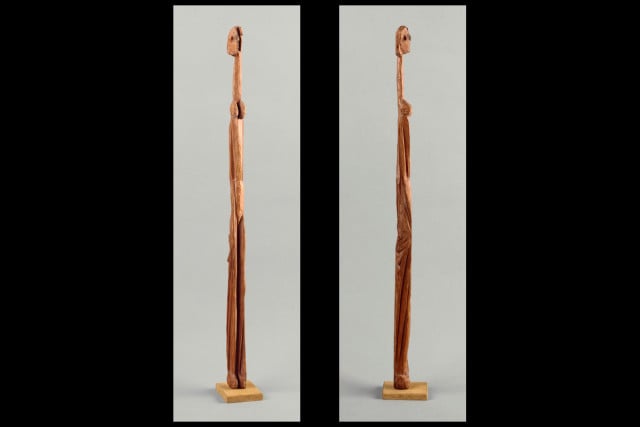Art & Exhibitions
At MoMA, Picasso’s Paintings Go on a Diet
THE DAILY PIC: The Spaniard carved figures out of a canvas's stretcher bars.

THE DAILY PIC: The Spaniard carved figures out of a canvas's stretcher bars.

Blake Gopnik


THE DAILY PIC (#1403): The last of this week of Pics I’ve mined from the “Picasso Sculpture” show at MoMA in New York. (Frankly, it’s been a bit exhausting – as any encounter with good art is.)
These are two views of a piece called Standing Woman, which Picasso whittled into life in 1930. Despite the work’s bizarre proportions – less than an inch thick and wide, by 20 inches tall – it manages to be amazingly evocative in its smaller details. The folds of the drapery, the tension in the limbs, for instance, feel as though they’ve been borrowed from classical sculpture and somehow compressed into the strange space Picasso happened to have available.
But what’s especially important about that space is that its proportions are not arbitrary. They come from the fact that the scraps of wood Picasso chose to carve are leftover lengths from stretcher bars, the wooden supports a canvas is tacked to before it gets painted. Picasso, that is, has built this series of sculptures around the scaffolding that underlies the painted pictures he was better known for. It’s as though he’s discovered the representational heart of the Western tradition lying buried in his paintings’ foundations, and let it loose to shape the material stuff those very pictures are built from. The ghost in his machine just can’t be bottled up. (Musee national Picasso-Paris, dation Pablo Picasso; © 2015 Estate of Pablo Picasso / Artists Rights Society (ARS), New York)
For a full survey of past Daily Pics visit blakegopnik.com/archive.